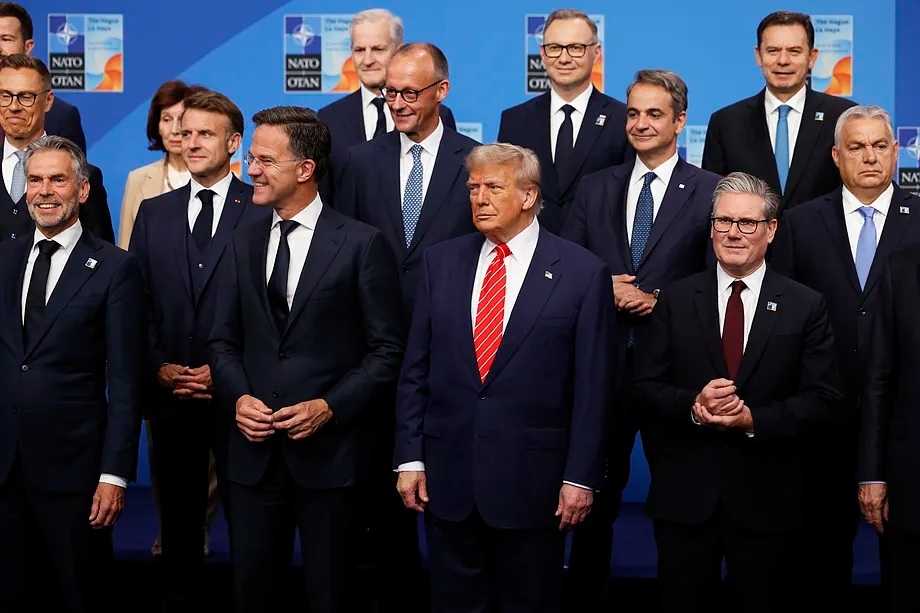Pedro Sánchez did not make any plea or argue his rejection to increase military spending beyond 2% of GDP during the NATO leaders' meeting. The President of the Government of Spain "did not dare to defend his refusal in front of [Donald] Trump," sources allied with EL MUNDO claim. They specifically use the term "chicken" to describe his attitude, which can be translated as "cowardly" or that he "backed down".
Sánchez did defend his position, for example, two days before the summit in The Hague (Netherlands) in a statement without questions. He was explicit in expressing that for "the Government of Spain, it does not make sense to commit to spending 5% of GDP on Defense." And in the press conference after the meeting, he stated that it would have been "an absolute mistake for Spain" to commit to 5%.
But during the meeting, in front of the President of the United States, allied sources insist that he did not say anything at all on this point. He avoided any confrontation, thus continuing the behavior he exhibited in the lead-up to the meeting or, notably, during the family photo on Wednesday. Furthermore, they add that he also did not address any issues related to Gaza, which is another major demand of the Government and where a disagreement with Trump could have also occurred.
All of this contrasts with what happened yesterday at the European Council meeting held in Brussels, where defense spending and the situation in the Middle East were also discussed. In this forum, the President of the Government was more participative, stating that "5% is not possible"; that "the problem is not numerical but of capabilities"; he spoke of "multilateralism"; and added that it is necessary to "defend the social model, cohesion, and competitiveness."
He also mentioned the need to continue deploying troops on the eastern border, near Russia, but not to ignore the southern flank, and also emphasized the Middle East and the Sahel. In short, all his arguments on foreign policy that, however, he did not bring up at any time within the NATO meeting. And the difference between both meetings is indeed the presence of Trump.
Government sources, on the other hand, consider Sánchez's attitude during the NATO summit as normal and deny seeking "an image of isolation". The belief within the Executive is that some countries have played "posturing" on military spending because "they will not reach 5% afterwards." "We are not posturing. It is a political position," they defend.
The Spanish delegation points out that the closed-door meeting of leaders in The Hague took place in a "relaxed and conciliatory atmosphere." They argue that, unlike the previous days and everything surrounding the meeting, the conversation did not focus on the 5% threshold but on developing capabilities. "That's what matters," these sources point out.
They also explain that Trump praised allies who were already reaching 2% of Gross Domestic Product in defense spending, but also expressed his displeasure because not everyone was reaching 5%. "I don't understand why," he said. They note that there was some intervention in favor of the "flexibility" that allows countries to establish their spending path.
Regarding what was agreed upon at the EU leaders' meeting in Brussels yesterday, the European Council emphasized "the need to continue substantially increasing defense and security spending in Europe, and to invest better jointly, also pointing out the commitment made at the NATO summit in June by the Member States that are also part of NATO." It added that "work on capabilities in the priority areas identified at the EU level must be accelerated, in full coherence with NATO."
In essence, the leaders who attended the meeting in the EU capital, including Sánchez, decided to support and follow what was agreed upon at the NATO meeting earlier this week, where all allies signed up to reach five points of GDP in military investment. Therefore, the President of the Government of Spain signed the Alliance agreement and agrees with what was endorsed by the European Council based on the same document, but at the same time, he says that he will not reach that figure under any circumstances. At least, that's what he does when Donald Trump is not present.
